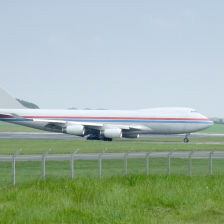The Travel Detective
JFK Air Traffic Nightmares
 October 17, 2007
October 17, 2007
If you’ve been reading the news lately, then you’ve heard that on orders of President Bush, the Secretary of Transportation is meeting with airlines in New York to determine how to lessen the delays at JFK.
But here’s what you didn’t necessarily read: After the debacle at JetBlue last Valentine’s day, the airline asked for just such a meeting – that was back in February. And then, after the worst summer of delays in recent memory, the administration is jumping into action and having a meeting. This is akin to suddenly discovering there was a hurricane in the Gulf!
And what can this meeting accomplish? Very little. Why? Because no airline wants to blink in this game of scheduling “chicken.”
Airlines schedule competitively, NOT realistically. Everyone says they want to fly at 8 in the morning, so what do the airlines do? Every flight on every airline is “scheduled” to leave at 8 a.m.
You don’t have to be a math whiz – and believe me, I failed math repeatedly in high school, but I CAN do basic addition – to figure this out: If a runway at JFK can handle only 34 takeoffs an hour and the airlines has scheduled 56 flights, more than half of those scheduled flights will never take off anywhere near 8 a.m.
So who’s kidding whom? Problem is, it’s not funny anymore. The airlines then fudge their schedules, so that a flight that is on the schedule for 90 minutes might use only 48 minutes of true flying time. And then, if it arrives “earlier” than scheduled, in reality, it’s still later than it should be!
And no one wants to blink.
The real problem is local control. Whether it’s Chicago, Miami, Los Angeles, Dallas, Atlanta, New York or countless other airports, the local airport authorities are essentially prohibited from regulating the airlines. The sad part is that they know better than any other government agency what their real capacity issues are – at gates, on taxiways and on runways. And yet, they can’t seem to do anything about it.
It would be a simple (and fair) solution, for example, for the New York Port Authority to make a ruling for all airlines serving JFK that they would be allotted so many specific takeoff and landing times at different times of the day. They would then leave it up to the individual airlines to determine which aircraft they would choose to operate during those specific times – from a small 37-passenger regional jet up to a 747-400 (and soon, an A380). But that would be its slot.
 Instead, we’re not getting that simple solution. One suggestion is to implement congestion pricing. In theory, airlines would pay more money to fly at peak times. And in theory, that extra cost would encourage them to spread out their schedule. In reality, that will never happen.
Instead, we’re not getting that simple solution. One suggestion is to implement congestion pricing. In theory, airlines would pay more money to fly at peak times. And in theory, that extra cost would encourage them to spread out their schedule. In reality, that will never happen.
The airlines would simply pass those charges onto passengers, who would pay more to get on the “scheduled” 8 a.m. flight, and STILL sit on the tarmac for hours. Why? Because the airlines still would have no real economic consequences for continuing to schedule every flight for competitive reasons.
One piece of good news: Some airlines at Kennedy and other airports have announced they are cutting back on some flights to ease congestion. US Airways is doing it in Pittsburgh, and Delta is doing it at JFK.
But this, too, needs to be put in proper perspective. It’s NORMAL for airlines to reduce service in the fourth quarter, when passenger loads drop. The key is what will they do next summer? For Delta, they’ve already announced an INCREASE in the number of flights out of Kennedy from around 188 to more than 200 flights a day. And therein lies the continuing problem.
Until the Department of Transportation does some tough rule-making about scheduling that also includes harsh economic consequences – consequences that can’t simply be passed on to passengers without changing the basic problems themselves – nothing will be done.
I’ve got more to say on the subject – including what needs to be done AFTER you land, in my next column. And once again, it’s actually a pretty easy fix. Stay tuned.












